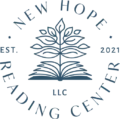Dyslexia Therapy

We provide three tiers of therapy for students with dyslexia and other reading difficulties.
Grades K-1
Early intervention plays a vital role in equipping children with essential skills before the achievement gap has a chance to grow. At this developmental stage, instruction emphasizes foundational literacy skills such as phonological awareness (the ability to recognize and manipulate sounds in spoken language), letter recognition, alphabet knowledge, and phonics (understanding the relationship between letters and their corresponding sounds). Mastery of these early skills is critical for long-term reading success. Students in these grades typically receive targeted support two to three times per week.
Grades 2-8
During these crucial early academic years, the effects of dyslexia often become more noticeable. As students begin to recognize the challenges dyslexia presents in their ability to read and write as well as their peers, it can feel frustrating. Many of these students will benefit from Take Flight: A Comprehensive Intervention for Students with Dyslexia, a proven, highly effective program designed to help them understand the patterns and structure of words in the English language. By learning these patterns, students can improve their reading and spelling skills. To see the best results, students typically participate in this intensive dyslexia therapy three to four times a week.
Grades 9-Adult
It’s never too late to start dyslexia therapy. For older students who struggle with guessing unfamiliar words or avoiding reading altogether, a fast-paced, targeted curriculum is exactly what they need to unlock the world of reading. We use a specialized program, similar to Take Flight, called Jet: A Fast Paced Reading Intervention. The program is delivered at a quicker pace to match the needs of these older students. After just one year, students often experience significant progress, gaining the ability to read more confidently and understand texts like never before. We also offer ongoing support to help with executive functioning skills and to ensure students maintain their newly acquired reading and writing abilities.
Educational Coaching
Often, other challenges come with dyslexia. If requested, we can also provide ongoing support for success in school, including executive functioning.
If you are looking for a therapist…
In-person sessions are always best. However, online therapy is also available.
